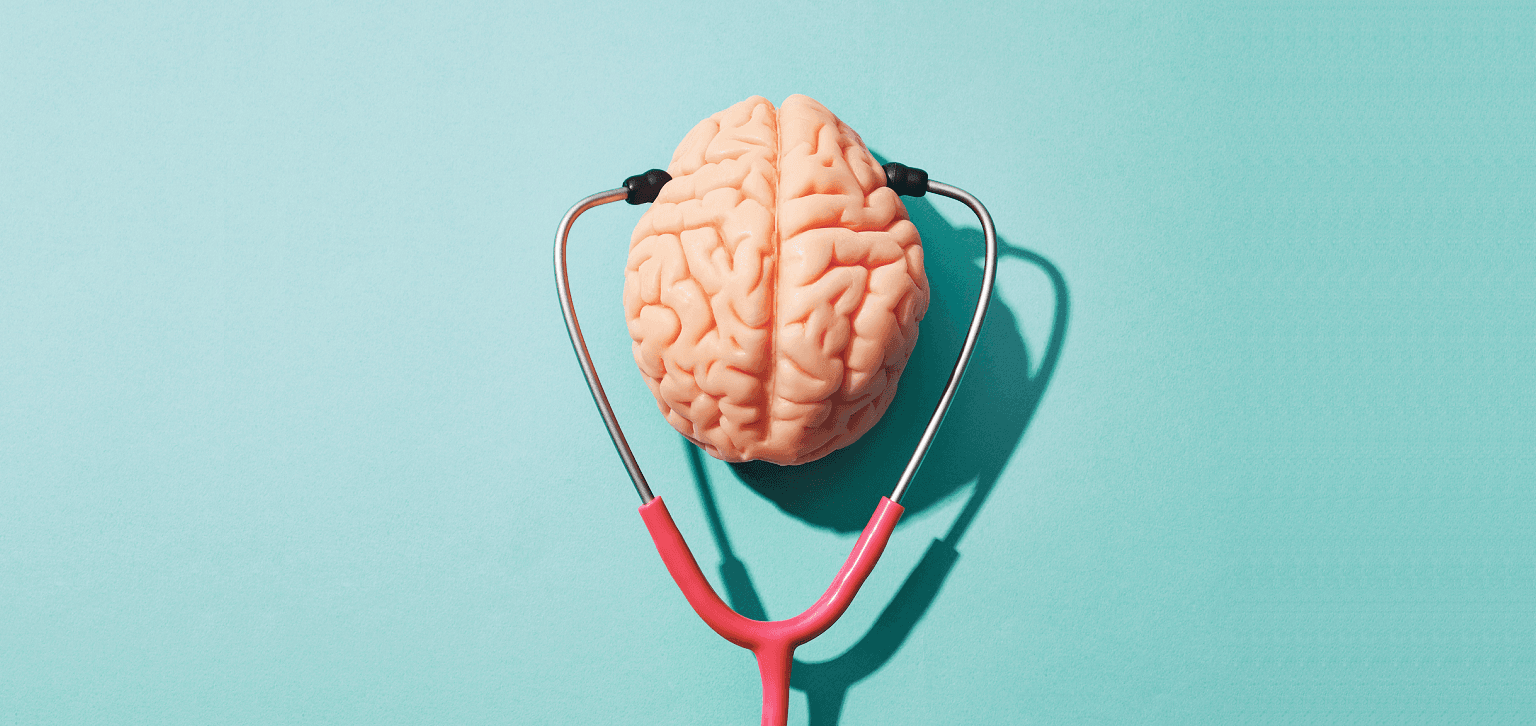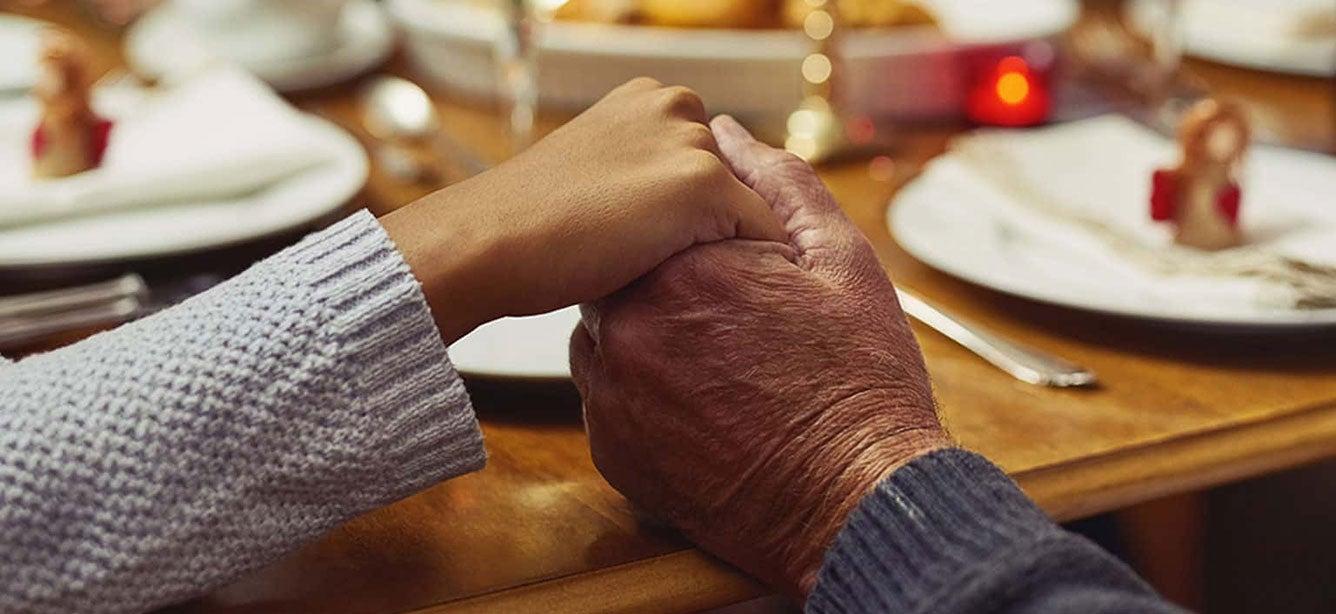Anxiety, Depression, and Sleep: The Pandemic's Toll on Older Adults’ Mental Health
7 min read

The COVID-19 pandemic changed the way we live, work, and socialize. But for older adults—a population highly vulnerable to the health effects of the virus—it's been an especially difficult journey. As the world adjusted to a new normal, older Americans faced many disruptions to their daily lives such as social isolation, health worries, financial uncertainty, and the loss of loved ones. While some people adapted to these challenges with remarkable resilience, the toll on older people’s mental health cannot be ignored.
In "The Impact of the COVID-19 Pandemic on Older Adults' Mental Health,” one of the breakout sessions at our Older Adults Mental Health Awareness Day (OAMHAD) Symposium, a panel of experts shed light on the mental health struggles brought on by the pandemic—and the continued importance of understanding and supporting older adults’ mental wellness.
How did the pandemic affect older adults’ mental health?
Stay-at-home orders and other COVID-19 social distancing measures, while vital for public health, had a harmful consequence for older adults: social isolation. The sudden stop to regular gatherings, community activities, and family visits left many without the connections essential to their mental and emotional well-being. This isolation was made worse by the reliance on technology to bridge communication gaps. Older adults who weren’t familiar with digital platforms faced extra barriers to staying connected with loved ones, accessing telehealth services, and participating in virtual social activities, which only added to their sense of detachment.
One of the effects of COVID isolation on seniors, unsurprisingly, was loneliness. “Studies show that chronic loneliness can adversely affect memory, mental and physical health, and longevity,” said OAMHAD presenter Dr. Erica Solway, Deputy Director of the University of Michigan National Poll on Healthy Aging (NPHA). The NPHA is a recurring household survey of more than 2,000 U.S. adults age 50 to 80, focused on health issues affecting older Americans.
"Recognizing the serious effects of loneliness on health, we first included questions on this topic in our October 2018 poll well before the pandemic began,” Solway explained.
“In looking at the data, even then, we became deeply concerned about the high rates of loneliness we saw, recognizing the significant impact of the stay-at-home orders and other critically important COVID-19 mitigation strategies taken during the early days of the pandemic."
According to one NPHA, 41% of respondents reported feeling a lack of companionship during the early stages of COVID, compared to 34% in 2018. In June 2020, one in three older adults (35%) said they enjoyed less companionship compared to what they experienced before March 2020. Fifty-six (56%) older adults said they felt isolated from others from March to June 2020, compared to 27% in October 2018. Forty-six percent (46%) reported having infrequent social contact compared to 28% in 2018.1
In January 2021, an NPHA asked older adults how the pandemic affected their mental health, revealing a strong link between the two. Eighteen percent (18%) said their mental health was overall worse than before the pandemic.2
The specific mental health issues reported in the survey included:
- Anxiety: Fear of infection, concerns about the health of loved ones, and the upheaval of daily life created a climate of constant worry for many older people. According to the NPHA, 28% of older adults reported feeling worse anxiety or worry during the pandemic.
- Depression: In the early days of the COVID-19 pandemic, older adults not only lost friends, family, and neighbors to the virus; they lost a sense of normalcy. The weight of these losses, and the strain of navigating a world reshaped by the pandemic, led to a rise in depression. In the NPHA, 19% of older adults reported worse depression symptoms of feelings of sadness during the pandemic. Another study showed adults over age 60 were more likely to suffer from depression and have a poor quality of life due to their health during the ongoing pandemic, especially if they experienced COVID-19 symptoms.3
- Sleep: As anxiety and depression took hold, restful sleep became another casualty for many older adults who already had trouble falling and staying asleep. Nineteen percent (19%) of NPHA respondents said their sleep was worse during the COVID-19 crisis.2
In January 2023, another NPHA revisited the topic of loneliness and discovered social isolation is still a problem among older adults. While fewer people (34%) said they felt socially isolated compared to early in the pandemic (56%), this figure was notably higher than what was reported in 2018 (27%).1
Solway noted that certain groups of older adults appear to be more affected by loneliness and mental health challenges than other groups—including women, people with lower household incomes, people with disabilities, people who live alone, and those who are already in poor physical and mental health.
"It is important to note that the pandemic continues to have a big impact on overall well-being for many people and may contribute to more limited opportunities for health and social connection," Solway said. "For some people, the risk of being infected by COVID-19 remains a very serious concern, including those who are at high risk or those who love and care for those who are high risk. Ensuring access to mental health supports and care, including through helplines and through telehealth services, is essential."
Long COVID and mental health
One group that continues to be heavily impacted by the pandemic is older adults who suffer from "long COVID," defined as when symptoms linger or develop four or more weeks after an infection. According to the National Institute on Aging, it’s likely millions of Americans have long COVID, which can involve symptoms ranging from severe fatigue to joint pain and cognitive problems. The risk of developing this condition is thought to increase with age. Older adults with long COVID may be more likely to develop mental health issues due to their physical impairments and constant fear of reinfection.
"If we can no longer safely attend social and public events, there's myriad research showing that older adults are harmed by isolation and loneliness," said OAMHAD presenter JD Davids, founder of the Network for Long COVID Justice and Strategies for High Impact (S4HI), which sponsors the Long COVID Justice project. "This is even more likely amongst our LGBTQ elders and others who may have not had the family support that becomes so important as we age."
Where can older adults find mental health support?
If you or someone you know is struggling with mental health symptoms, know that help is available. The resources below are good places to start.
Health care provider: One of the first people you should talk to about mental health challenges is your doctor. There are many safe and effective treatments for anxiety and depression that can help you feel more like yourself again. This free, 100% confidential online screening from Mental Health America can help you learn more about your mental health and get the conversation started.
Online therapy: Virtual counseling allows you to talk with a licensed therapist over a secure connection using a computer, tablet, smartphone, or other internet-enabled device. It’s a convenient option if you cannot leave your home or want to avoid public spaces.
Community resources: Area Agencies on Aging (AAA) are public or private non-profit agencies appointed to serve the needs of older adults. Your local AAA can point you toward various senior services, including mental health resources. Use the Eldercare Locator to find your local agency.
Support helplines: Support lines can be an invaluable resource if you need immediate assistance, a compassionate listening ear, and practical guidance. Below are two that provide services to older adults in the U.S.:
- The Friendship Line (888-670-1360) serves as a crisis intervention hotline as well as an emotional support service for older adults and others. It's available 24 hours a day, 365 days a year. During COVID, the Friendship Line fielded countless calls from older adults with loneliness, anxiety, depression, and other mental health issues. Today, it handles roughly 11,000 inbound and outbound calls per month. "We have clients who get calls every single day, and they look forward to those calls because for a lot of them, that's the only type of social interaction they have throughout their entire day," said OAMHAD presenter Michael Beco, Business Director for the Friendship Line at the Institute on Aging.
- The National Suicide and Crisis Lifeline offers free, unbiased, and confidential support 24/7. When you call or send a text message to 988, you’re put in touch with a trained counselor from the existing Suicide Prevention Lifeline network. This person will listen, offer non-judgmental support, and provide any resources that may be helpful.
For the latest information and insights on COVID-19, visit our COVID-19 for Older Adults resource library.
This project was supported, in part by grant number 90CSSG0048 and 90FPSG0051 from the U.S. Administration for Community Living, Department of Health and Human Services, Washington, D.C. 20201. Grantees undertaking projects under government sponsorship are encouraged to express freely their findings and conclusions. Points of view or opinions do not, therefore, necessarily represent official Administration for Community Living policy.
Sources
1. University of Michigan Institute for Healthcare Policy and Innovation. National Poll on Healthy Aging: Trends in Loneliness Among Older Adults from 2018-2023. Found on the internet at https://www.healthyagingpoll.org/reports-more/report/trends-loneliness-among-older-adults-2018-2023
2. University of Michigan Institute for Healthcare Policy and Innovation. National Poll on Healthy Aging: Mental Health Among Older Adults Before and During the COVID-19 Pandemic. Found on the internet at https://www.healthyagingpoll.org/reports-more/report/mental-health-among-older-adults-and-during-covid-19-pandemic
3. Hoang C. Nguyen, et. al. People with Suspected COVID-19 Symptoms Were More Likely Depressed and Had Lower Health-Related Quality of Life: The Potential Benefit of Health Literacy. Journal of Clinical Medicine. March 31, 2020. Found on the internet at https://www.mdpi.com/2077-0383/9/4/965


